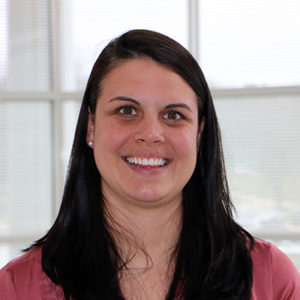By Charlene N. Rivera-Bonet | Waisman Science Writer

At a Glance:
- Expanding access to genetic testing – The Baby Badger Network (BBN) is a statewide initiative in Wisconsin aimed at making genetic testing more accessible for critically ill newborns, especially in NICUs outside major academic centers like Madison and Milwaukee.
- Training and collaboration – BBN connects genetic experts and NICU providers to develop workflows, share best practices, and offer educational resources to help clinicians understand and implement whole genome sequencing.
- Advocacy for insurance coverage – A key goal of BBN is to advocate for insurance coverage of genetic testing, emphasizing its potential to reduce hospital stays, lower costs, and improve outcomes by enabling faster, more accurate diagnoses.
In Wisconsin, a new initiative is transforming the landscape of neonatal care by making genetic testing more accessible for critically-ill newborns. The Baby Badger Network (BBN) is a team effort among healthcare providers to break down barriers to genetic testing and ensure timely diagnosis and care for their most vulnerable patients.

4,800 out of the nearly 20,000 genes in human DNA are known to be associated with a genetic condition. Some of these genetic conditions are well known, can be easily detected, and have treatments. For example, as soon as babies are born, the Wisconsin Newborn Screening (NBS) program tests for 48 specific well-known conditions. One of these is PKU, a metabolic disorder that can be treated with a low protein diet.
Other genetic conditions, like infantile seizures or encephalopathy, can make newborn babies significantly sick, but not be detected through conventional tests. Whole genome sequencing, a genetic test that looks at all 20,000 genes to detect mutations, has the ability to provide a faster diagnosis for significantly sick babies, allowing more timely and accurate medical care. The issue is, genetic testing is not easily accessible for all. The BBN is seeking to change that.
Modeled after programs in Michigan and California, the BBN is a collaboration between healthcare providers throughout Wisconsin that seeks to increase access to genetic testing for critically-ill newborns in the state. They tackle a few big barriers to genetic testing including the small number of healthcare providers trained in genetic testing, and the lack of insurance coverage of the prohibitive costs.
Aiding the implementation of genetic testing

“We know that genetic testing is useful and provides cost savings, but there are barriers that exist that don’t allow for genetic testing to occur for all babies. One of those is that in Wisconsin we have limited genetics professionals ,” says April Hall, PhD, MS, CGC, genetic counselor and researcher at the Center for Precision Medicine, clinic coordinator at the Waisman Center’s Undiagnosed Genetic Disease Clinic, and director of the BBN along with Jessica Scott Schwoerer, MD, geneticist at Children’s Wisconsin in Milwaukee.
The limited number of genetic counselors and geneticists combined with the fact that most of the genetic expertise is centralized to Milwaukee and Madison creates a huge geographic barrier for the rest of the neonatal intensive care units (NICU) across the state, especially those in rural areas. “These are babies who are critically ill and admitted to NICUs. If they’re admitted to a NICU in Madison or the Milwaukee area, they’re likely to get a genetics consult, they’re likely to get genetic testing, they’re more likely to get a diagnosis,” says Sara Zoran, MS, CGC, genetic counselor and coordinator of the Genetic Systems Integration (GSI) at the Waisman Center and educational lead at the BBN. “But if the baby is admitted to a NICU that’s not one of these big, academic institutions, they’re less likely to have any of that. Or if they get it, it’s probably after a longer period of time,” she adds. “The network was really set up to overcome those barriers,” Hall says.
The network brings together genetic experts from the University of Wisconsin-Madison and the Medical College of Wisconsin such as Hall, Scott Schwoerer, and Zoran to share their expertise with NICU providers around Wisconsin that may not be as familiarized with the test and help them develop workflows to establish at their respective institutions. “Genetic testing can be a really complicated process with multiple different players and multiple different steps. By developing standardized workflows, forming collaborations, and collectively finding solutions to issues, we’re hopefully making the process feel a little less overwhelming and easing the implementation of genetic testing at hospitals across the state,” Hall explains.
Currently, the BBN is working with two pilot sites, HSHS St. Vincent and Aurora BayCare, both in Green Bay, Wisconsin. To ease in, the network started with sites that already had some genetic testing happening, so that they could both learn from the sites and provide support for their existing programs.
Sumedha Ghate, MS, CGC, is a genetic counselor at St. Vincent Hospital who along with Dr. Robert Rock and the other neonatologists at her hospital, helped develop a workflow for implementing genetic testing for NICU babies in 2021. A few years later, her team connected with BBN. “The reason that we decided to join is because even though we had already started doing rapid whole genome sequencing at our center, we wanted to share best practices. We wanted to help other programs grow and in turn, continue to learn ourselves and improve our practice,” Ghate says.
Training NICU providers
Participating in BBN helped the team at St. Vincent reevaluate their selection criteria for which babies received testing, and realize that their genetic counselors needed to work more closely with the NICU providers to help them better understand what the testing is and how to analyze it. “I feel like it’s helped our NICU and our genetics team form a closer bond too,” Ghate points out.
Many neonatologists and NICU providers never received training in the advanced genetic tests that have become available in the past few years. So, combining their expertise with that of geneticists and genetic counselors becomes an important part of diagnosing a child: “Partnering with the genetics team is really helpful. They can share their perspective, review what’s available in the literature, and then we develop our approach from there,” says Ryan McAdams, MD, neonatologist in the Department of Pediatrics at UW-Madison and collaborator of the BBN.
“If the providers at the NICUs are not familiar with [genetic testing], then they may not feel as comfortable doing it. So, we really want to educate them, but we also want to provide support to them,” Zoran says.

The BBN seeks to educate NICU providers like neonatologists and nurses on how to implement genetic testing. Through BBN ECHO, they offer a monthly free virtual series covering topics such as basics of decoding a genetic test report, developing workflows in your NICU, identifying neonate candidates for genomic testing, talking to parents about genetic testing, and more. It is an all teach all learn model that uses didactic presentations paired with case studies.
In addition, Zoran has created a webpage full of resources for providers wanting to learn more about genetic testing.
Advocating for insurance coverage
One of the benefits of genetic testing is getting a diagnosis faster. “When you’re the family and that’s your child, you want to know as soon as you can,” McAdams says. “And for me as a neonatologist, I want to know as soon as we can too, so I can counsel the families better, but also direct the care better so I can tailor it to the best needs of the baby.”
One thing that stands in the way of getting those fast results is insurance coverage, or the lack thereof. “This is one of the things that the insurance company has locked onto, genetic testing and pre-approvals,” McAdams says. While waiting for approval from insurance to do genetic testing, clinicians might order a plethora of other evaluations that may or may not work, but can still cost more money.
But getting timely genetic testing may cut those extra costs. “That diagnosis may be impacting medical management, they may have shorter hospital stays and less non-genetic diagnostic evaluations, and that’s where a lot of the savings comes in. Is shorter hospital stays, less evaluations,” Zoran says.
“And you don’t even put a cost to what it feels like for the family and the parents. There should be a value to that,” McAdams adds.
A big component of the BBN is advocating for genetic testing coverage with insurance companies so that families don’t have to wait long times for pre-approvals or pay out of pocket in order to access a diagnosis and tailored care.
McAdams hopes that the program will be able to show how successful genetic testing is, and what was thought as expensive will be seen as cost saving to all parts involved.
The road ahead
As they start wrapping up their year with their first two pilot sites, the BBN team is identifying new potential sites with less genetic support that could benefit from the network. But they are doing it in strategic ways to make sure the program is meaningful for both patients and providers. “We don’t want to go in and just implement these programs based on how we think things should be done. A really important component of our program is hearing from the patients and providers about what their needs are and what they hope to see from the program,” Hall says.
This year, the program is intended to expand to six additional sites including: Gunderson Health System in La Crosse, Marshfield Children’s Hospital, Children’s Wisconsin Fox Valley Hospital, Bellin Hospital in Green Bay, Aurora Sinai Medical Center in Milwaukee and Aurora West Allis Medical Center.
Funding for the BBN is provided by Advancing a Healthier Wisconsin Endowment, Maternal & Child Health Title V Block grant to the WI Department of Health and Children and Youth with Special Health Care Needs, and the Department of Health Services – Birth Defect Prevention and Surveillance Program
